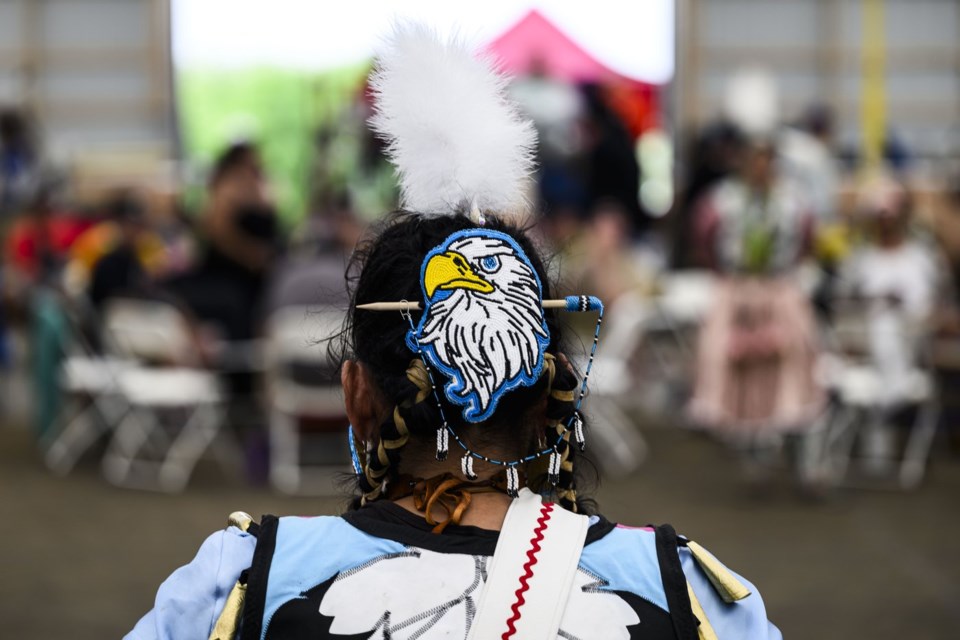OTTAWA — Most Canadians believe the country is making good progress on reconciliation with Indigenous Peoples, a new poll from Leger suggests.
"The extent to which people feel progress on reconciliation is being made or not has an important bearing on how they feel about the country," said Jack Jedwab, president and CEO of the Association for Canadian Studies, which commissioned the poll.
The survey of 1,580 respondents was conducted between June 20 and 22. A margin of error cannot be associated to the survey because online polls are not considered to be truly random samples.
Forty-seven of the respondents self-identified as Indigenous. Jedwab said that small number and the lack of regional breakdowns of the numbers means the poll should be interpreted with caution.
But the poll still shows where Canadians are 10 years after the final report from the Truth and Reconciliation Commission was released, he said.
"There's several attempts to measure progress on reconciliation by virtue of the extent to which we, collectively, have met the conditions of the various calls to action in the Truth and Reconciliation (Commission's) report," Jedwab said. "But we're not really taking, up to now, the pulse of Canadians in terms of whether or not they feel progress is being made.
"It's sort of a proxy for helping us understand how Canadians feel about their relationships."
Fifty-five per cent of poll respondents said they believe Canada is making good progress on reconciliation, but their answers vary widely between age groups — 40 per cent of respondents aged 18 to 24 said Canada was making progress, while 67 per cent of respondents 65 and older said the same.
Jedwab said he was surprised to see such a large number of respondents reporting progress, given the many issues in the Crown-Indigenous relationship still unresolved.
"The survey suggests there's something to build on with respect to the relationship, with respect to reconciliation and with respect to how people feel about the country," he said.
The survey also asked whether Canadians trust other Canadians — the vast majority of respondents said they do. But respondents aged 18 to 24 reported being the most trusting of others, at 77 per cent, while those aged 35 to 44 were the least trusting at 52 per cent.
Roughly six in ten non-Indigenous respondents said they trusted Indigenous people. Reported trust in Indigenous people is highest in Nova Scotia (71 per cent) and Ontario (64.3 per cent) and lowest in Saskatchewan (38.3 per cent), P.E.I. (43.8 per cent) and Manitoba (44.8 per cent).
The survey also suggests respondents who said they are proud of Canada's history are more likely to report Canada is making good progress on reconciliation with Indigenous Peoples, at 68 per cent. Of those who reported they're not proud of Canada's history, just 39.3 per cent said they believe Canada is making good progress.
Pride in Canada's history seems to be strongly correlated with the age of respondents. Just 36 per cent of respondents aged 18 to 24 reported feeling proud of that history, while 78 per cent of those 65 and older said the same.
Francophone youth reported being more proud of Canada's history (59 per cent) than anglophones (35 per cent) — a finding Jedwab said he was surprised by, given the persistence of the province's separatist movement.
Jedwab said while the poll found most Indigenous respondents reported feeling pride in Canadian history, it can't be taken at face value because the sample size was so small.
"There's a need to actually pursue further research in this area to get a better idea of how Indigenous Peoples feel," he said.
"We need to be more attentive to that diversity in terms of drawing conclusions about the views of Indigenous Peoples … We do need to better understand what the nature of the relationship is right now, how people feel about whether progress is being achieved or not and how we go forward together."
The polling industry's professional body, the Canadian Research Insights Council, says online surveys cannot be assigned a margin of error because they do not randomly sample the population.
This report by The Canadian Press was first published July 26, 2025.
Alessia Passafiume, The Canadian Press



